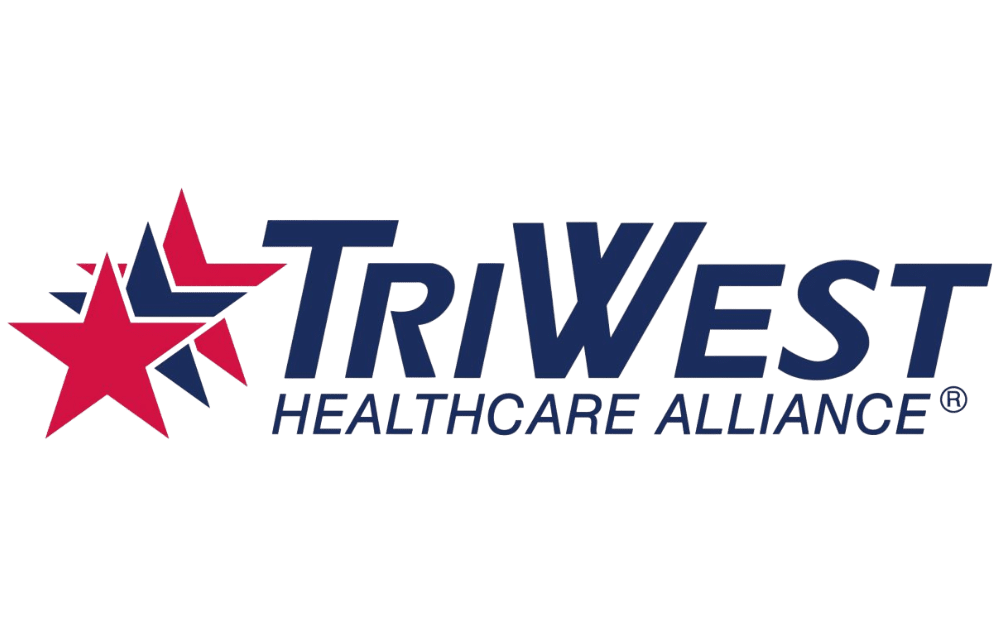Inpatient rehab
What is Inpatient Rehab?
Inpatient rehab is a structured and immersive form of treatment that provides individuals with a safe and supportive environment to recover from addiction or severe injury. It involves residing within a specialized facility where patients receive intensive rehabilitation therapies and round-the-clock medical supervision. This type of rehab is especially beneficial for those whose conditions require a higher level of care, ensuring that they receive comprehensive treatment that addresses both physical and psychological aspects.
Inpatient rehab encompasses a wide range of therapies, including physical therapy, cognitive behavioral therapy, and various experiential modalities. These services are tailored to meet the unique needs of each patient, facilitating a holistic approach to recovery. The goal is to equip individuals with the tools and strategies they need to manage their conditions effectively and reintegrate into their communities.
Benefits of Residential Treatment
Residential treatment offers a myriad of advantages for those seeking recovery. One of the primary benefits is the removal from everyday stressors and triggers that may contribute to substance use. Within the confines of a supportive environment, individuals can focus solely on their recovery without external distractions.
Patients also benefit from a structured routine that incorporates therapy sessions, group activities, and personal reflection time. This routine helps instill discipline and accountability, which are crucial components of long-term recovery. Additionally, being surrounded by peers who are experiencing similar challenges fosters a sense of community and mutual support, which can be incredibly motivating.
Anecdotal evidence from former patients highlights the profound impact that inpatient rehab can have. Many report a renewed sense of purpose and a clearer understanding of their addiction triggers, which empowers them to make healthier choices post-treatment.
Modes of Therapy in Inpatient Rehab
Inpatient rehab facilities often employ a variety of therapeutic approaches to cater to the diverse needs of their patients. Cognitive Behavioral Therapy (CBT) is a cornerstone treatment that helps individuals understand and change negative thought patterns that influence their behavior. Similarly, Dialectical Behavior Therapy (DBT) provides patients with skills to manage distress and improve emotional regulation.
Experiential therapies, such as art and music activities, offer creative outlets for self-expression, allowing patients to explore emotions that may be difficult to articulate verbally. Adventure therapy and equine-assisted therapy are also popular, encouraging individuals to engage with the world in new and exciting ways. These therapies not only aid in physical rehabilitation but also contribute to mental well-being by promoting resilience and confidence.
At Mile High Recovery Center, these evidence-based methodologies are complemented by personalized care plans. Each patient receives a tailored treatment regime that aligns with their specific needs and recovery goals, ensuring that their journey towards sobriety is both effective and meaningful.
Medical Support and Management
Inpatient rehab facilities provide essential medical support to manage withdrawal symptoms and other health complications associated with addiction recovery. This often includes medication-assisted treatment (MAT) using drugs such as Suboxone and Vivitrol, which help alleviate cravings and prevent relapse.
Medical professionals in these facilities are equipped to handle emergencies and adapt treatment plans as patients progress through their recovery. For individuals with co-occurring mental health disorders, dual-diagnosis treatment is available. This integrated approach ensures that both substance use and mental health conditions are addressed concurrently, improving overall outcomes.
Accredited facilities, including Mile High Recovery Center, adhere to rigorous safety and quality standards. Their affiliation with reputable organizations such as the Joint Commission guarantees compliance with best practices in patient care and safety.
Medical management is further supported by a team of experienced clinicians, some of whom have personal recovery experiences, adding empathy and understanding to the care provided.
A Holistic Approach to Recovery
At the heart of inpatient rehab is a holistic approach to recovery that considers the physical, emotional, and social aspects of each patient. This all-encompassing strategy is designed to help patients achieve sustainable recovery by addressing the root causes of addiction and promoting overall well-being.
Nutrition education and physical fitness are integral components of this approach, as they contribute significantly to restoring health and vitality. Patients engage in daily exercise routines that improve physical endurance and relieve stress, while nutritious meals support their body’s healing processes.
The holistic model also emphasizes the importance of mental and emotional health. Mindfulness practices, meditation sessions, and individual therapy help patients cultivate self-awareness and emotional balance. These practices are essential for building resilience against future challenges and maintaining sobriety.
The Role of Family in Recovery
Family involvement is a crucial element of inpatient rehab, as it provides patients with a robust support network that extends beyond the treatment facility. Many programs include family therapy sessions to address interpersonal dynamics and facilitate communication between patients and their loved ones.
By involving family members in the recovery process, individuals are more likely to experience positive outcomes. Families learn how to support their loved ones effectively and develop coping strategies to deal with the emotional challenges of addiction. This collaborative approach fosters an environment of understanding and compassion, which can significantly enhance the recovery journey.
In the context of Mile High Recovery Center, families are encouraged to participate in therapy sessions and educational workshops. These resources empower families with the knowledge they need to assist their loved ones in achieving lasting recovery.
True recovery extends beyond the individual, transforming relationships and reinvigorating family connections, which can be a powerful motivator for patients.
Challenges and Solutions in Inpatient Rehab
While inpatient rehab offers a supportive and structured environment for recovery, it is not without its challenges. Some individuals may struggle with feelings of isolation from being away from home or experience anxiety about reintegrating into society after treatment. Addressing these challenges requires a multi-faceted approach that fosters resilience and preparation.
One effective solution is to gradually transition patients back into their communities through step-down programs like Partial Hospitalization Programs (PHP) and Intensive Outpatient Programs (IOP). These programs provide ongoing support and allow patients to practice the skills they’ve learned in a less restrictive setting.
Moreover, cultivating a strong alumni network can provide individuals with continued peer support post-treatment. At Mile High Recovery Center, an active alumni community ensures that former patients remain connected and engaged with their recovery journeys, providing encouragement and accountability to sustain long-term sobriety.
The Impact of Location on Recovery
Location plays a significant role in the recovery experience during inpatient rehab. The serene environment of a facility can significantly contribute to the healing process, offering peace and tranquility away from the chaos of daily life. Situated in the vibrant city of Denver, Mile High Recovery Center capitalizes on its urban location while also promoting access to outdoor therapeutic activities.
Being in proximity to both city life and nature provides a balanced setting for recovery, allowing patients to engage in both community-based and outdoor therapies. This unique combination encourages individuals to explore new and healthy hobbies, such as hiking, art, or community service, which can greatly enhance their recovery process and reintegration.
The geographical setting also offers opportunities for meaningful engagement with local resources and recovery communities. Engaging with these networks can ease the transition back into everyday life, fostering a sense of belonging and purpose.
Importance of Ongoing Support
Ongoing support is indispensable for individuals completing inpatient rehab, as it reinforces the skills and strategies they have acquired during treatment. Transitioning from a highly supportive environment to everyday life can be daunting, but continued support mitigates the risk of relapse.
Supportive housing, alumni networks, and outpatient services are integral to this continuum of care. Mile High Recovery Center excels in providing a coordinated pipeline that supports patients from initial admission through to long-term recovery. By offering various levels of care, patients can seamlessly transition to less intensive forms of treatment as they gain confidence and stability.
To further enhance long-term success, patients are encouraged to remain actively engaged with their recovery community. Support groups and regular check-ins with counselors provide a platform for exchanging experiences and maintaining motivation. This comprehensive support system lays the foundation for enduring recovery and personal growth.
What is Inpatient Rehab and how does it differ from outpatient services?
Inpatient rehab provides patients with a structured, immersive environment where they receive 24/7 care within a treatment facility. Unlike outpatient services, which allow individuals to live at home while attending scheduled therapy sessions, inpatient rehab ensures that patients are removed from everyday stressors and triggers, offering an intensive focus on recovery. This environment can be particularly beneficial for those with severe addictions or co-occurring disorders that require constant medical supervision. At Mile High Recovery Center, our inpatient program is designed to provide a comprehensive support system that nurtures the physical, emotional, and social aspects of recovery.
What are the key benefits of residential treatment in addiction recovery?
Residential treatment offers numerous advantages, such as eliminating external distractions and creating a safe space that fosters healing and personal growth. At Mile High Recovery Center, we emphasize a structured routine that combines therapy, group activities, and reflection time, all of which instill discipline and accountability. Patients often find comfort in being surrounded by peers with similar experiences, creating a sense of community and shared motivation. Additionally, our focus on personalized care plans ensures that each individual’s journey is tailored to their specific needs, maximizing the potential for successful recovery.
What types of therapy are commonly used in inpatient rehab and how do they contribute to recovery?
Inpatient rehab facilities employ various therapeutic approaches to address the diverse needs of patients. At Mile High Recovery Center, we use evidence-based practices such as Cognitive Behavioral Therapy (CBT) and Dialectical Behavior Therapy (DBT), which help patients modify negative thought patterns and enhance emotional regulation. Experiential therapies like adventure or equine-assisted therapy foster resilience and confidence, encouraging individuals to engage with the world in new ways. These therapies, combined with personalized treatment plans, support not only mental well-being but also the development of sustainable coping strategies.
How is medical support managed in an inpatient rehab setting?
Medical support in inpatient rehab is crucial, particularly in managing withdrawal symptoms and addressing health complications related to addiction. Facilities like Mile High Recovery Center provide medication-assisted treatment (MAT) with medications such as Suboxone and Vivitrol to ease cravings and prevent relapse. Our team of experienced clinicians, many of whom have personal recovery stories, offer empathetic and informed care. We adhere to strict safety standards and are equipped to handle emergencies, ensuring that both substance use and co-occurring mental health disorders are treated concurrently for optimal outcomes.
How does a holistic approach enhance recovery in inpatient rehab?
A holistic approach considers all aspects of a patient’s well-being, addressing physical, emotional, and social factors of recovery. At Mile High Recovery Center, we integrate nutrition education and fitness into our programs, helping restore health and vitality while relieving stress. Mindfulness, meditation, and individual therapy promote self-awareness and resilience. This comprehensive strategy empowers patients to address the root causes of addiction and supports long-term recovery. The holistic model encourages sustainable lifestyle changes that enhance overall quality of life.
What role does family play in the recovery process during inpatient rehab?
Family involvement is crucial in the recovery journey as it extends the support network beyond the treatment facility. At Mile High Recovery Center, family therapy sessions are integral, facilitating communication and addressing interpersonal dynamics. Engaging family members helps them understand how to support their loved ones effectively, fostering an environment of compassion and understanding. This collaborative effort not only benefits the individual in recovery but also strengthens family bonds, providing a motivating force for lasting change.
What are the common challenges in inpatient rehab and how are they addressed?
Inpatient rehab can present challenges such as feelings of isolation or anxiety about transitioning back to everyday life. At Mile High Recovery Center, we address these with a step-down approach, offering programs like Partial Hospitalization or Intensive Outpatient Programs that allow for a gradual reintegration into society. Our strong alumni network keeps former patients connected and accountable, ensuring continued peer support. By tailoring our services to meet these challenges, we help individuals build resilience and prepare for long-term sobriety.
How does the location of a rehab facility impact recovery?
The location of a rehab facility plays a significant role in the recovery process. At Mile High Recovery Center, situated in Denver, we offer the best of both urban and serene settings. The vibrant city life combined with access to outdoor activities creates a balanced environment conducive to healing. Patients can engage in both community-based and outdoor therapies, discovering new hobbies and skills that enrich their recovery journey. This geographical advantage supports meaningful engagement with local resources, easing the transition to a fulfilling, sober life.
Why is ongoing support important after completing inpatient rehab?
Ongoing support is critical after inpatient rehab, as it helps reinforce the skills and strategies learned during treatment. At Mile High Recovery Center, we provide a continuum of care that includes supportive housing, alumni networks, and outpatient services. These resources help mitigate the risk of relapse by keeping individuals engaged with their recovery community. Regular check-ins with counselors and participation in support groups ensure that patients remain motivated and connected. This comprehensive support system is essential for maintaining long-term sobriety and personal growth.
Resources
- Substance Abuse and Mental Health Services Administration (SAMHSA) – SAMHSA is a government agency that leads public health efforts to advance the behavioral health of the nation. They provide resources and information on substance abuse and mental health disorders.
- National Institute on Drug Abuse (NIDA) – NIDA is a federal government research institute that conducts and supports research on drug use and addiction. Their website offers valuable information on addiction treatment and recovery.
- American Psychiatric Association (APA) – The APA is a professional organization of psychiatrists that works to ensure humane care and effective treatment for all persons with mental disorders. Their website provides resources on mental health and addiction treatment.
- National Alliance on Mental Illness (NAMI) – NAMI is a grassroots mental health organization that provides support, education, and advocacy for individuals and families affected by mental illness. Their website offers resources on various mental health conditions and treatment options.
















